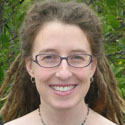Academic Editors
The following people constitute the Editorial Board of Academic Editors for PeerJ. These active academics are the Editors who seek peer reviewers, evaluate their responses, and make editorial decisions on each submission to the journal. Learn more about becoming an Editor.

Dawn E Bowles
Dr. Dawn Elizabeth Bowles, PhD is Assistant Professor in Surgery within the Division of Surgical Sciences at Duke University School of Medicine. She obtained her Ph.D. in Microbiology from Louisiana State University.

Hugo Sarmento
My work broadly focuses on the performance analysis, training load monitoring, match analysis, small-sided and conditioned games, and physical activity and health. Research in this area has been supported by qualitative and qualitative methodologies, in order to capture the dynamic and multifactorial reality that characterizes performance in sport. Although most of my research focuses on football, I am interested in the study of other sports, especially team ball sports, on which I have also developed several research works.

Biplab Joarder
He received his Ph.D. from the Indian Institute of Science Education and Research, Pune in 2015 on functional properties of biomolecule-based coordination polymers. He was an AITF postdoctoral researcher with Prof. George Shimizu at the University of Calgary followed by a JSPS postdoctoral fellow at Kyushu University, Japan. His current research endeavors are focused on developing inorganic and organic hybrid porous materials for energy and environmental applications.

Frederico F Salles
Dr. Frederico Falcão Salles is Associate Professor in the Department of Entomology at the Federal University of Viçosa (UFV). He received his BSc in Biology from Universidade Federal do Estado do Rio de Janeiro, and both Masters and Doctorate degrees from UFV, working with the systematics of Ephemeroptera. From 2006 to 2018 Dr. Salles was a professor at UFES with a sabbatical leave in the Museum of Zoology in Lausanne, Switzerland. He currently works with the systematics of aquatic insects with an emphasis on Ephemeroptera in both neotropical and global contexts, and also with other orders in a less complex geographical context. Other areas of interest includes: biology, ecology, biogeography, biomonitoring and scientific communication for public outreach.

Paul Christakopoulos
Chaired Professor in Chemical and Biochemical Process Engineering, Lulea University of Technology, Associate Editor of World Journal of Microbiology and Biotechnology. Awarded an EU Marie Curie fellowship.

Kejal Kantarci
Associate Professor of Radiology
2014 Elected Member - Lewy Body Disease Association Scientific Advisory Council
2012 Elected Secretary of the Psychiatric MR Spectroscopy and Imaging Study Group -
International Society of Magnetic Resonance in Medicine
2008 Dorothy Dillon Eweson Lecture Series Award - American Federation for Aging Research
2008 Excellence Through Teamwork Award - Mayo Clinic
2007 Beeson Award - National Institute on Aging, American Federation of Aging Research, John Hardford Foundation, Atlantic Philantropies, and Starr Foundation
2005 Multidisciplinary Clinical Research Development Award (NIH K12 Roadmap Initiative) - Clinical Research Scholars Program
2004 New Investigator Award - Alzheimer's Association

Edward R C Hornibrook
Edward Hornibrook is a Professor at The University of British Columbia, Okanagan Campus and the current Head of the Department of Earth, Environmental and Geographic Sciences. He is a biogeochemist specializing in stable isotopes with research interests in land-water-atmosphere exchange of trace gases. He employs a range of techniques, including gas and ion chromatography, laser spectroscopy and stable isotope ratio mass spectrometry, to study gases that have the potential to alter Earth’s climate, in particular, methane and carbon dioxide. Key topics are how such gases are produced and consumed in natural and anthropogenic environments, and the rates and mechanisms by which they are exchanged with the atmosphere.

Anna K. Croft
Professor at Loughborough University, specialising in biological chemistry, reaction mechanisms, and ionic liquids.

Carl P. Lipo
A Professor of Anthropology and Director of the Environmental Studies Program at Binghamton University in New York.

Glen M Borchert
Dr. Glen Borchert holds joint appointments as an Assistant Professor in Biology and Pharmacology at the University of South Alabama. He originally received a B.S. in Biology from the University of Tennessee then completed a Ph.D. in Genetics from the University of Iowa. Dr. Borchert’s research focuses largely on identifying novel genetic regulators and defining their roles in oncogenesis, microbiology and speciation. Since starting his laboratory at South Alabama in August 2012, Dr. Borchert has published dozens of papers in peer reviewed journals and had numerous grant applications funded including a highly prestigious NSF CAREER award (2014-2019).

Katherine S. Pollard
Associate Investigator at Gladstone Institutes and Associate Professor in the Institute for Human Genetics and the Department of Epidemiology & Biostatistics, University of California, San Francisco.

Felipe G Naveca
I am a microbiologist with experience in classical and molecular techniques applied to the study of human pathogens, mainly threatening RNA and DNA viruses. My research focuses on developing diagnostic tools, molecular epidemiology, and evolution, mostly on emergent and reemergent viruses. My team approaches include genomics and phylogenetic studies to characterize known and unknown viruses; field studies on arboviral emergence in a rural area in the Brazilian Amazon; immunogenetics studies related to susceptibility or resistance against microbial infections; studies on biomarkers of acute viral illness; in vitro & in vivo virus-host interactions and evolution; and SARS-CoV-2 and other respiratory viruses molecular epidemiology. Senior investigator of Fiocruz Amazonas and Deputy Director of Research and Innovation. Member of the Brazilian Society for virology since 1997. Member of the Brazilian network of specialists in Zika and correlated diseases.

